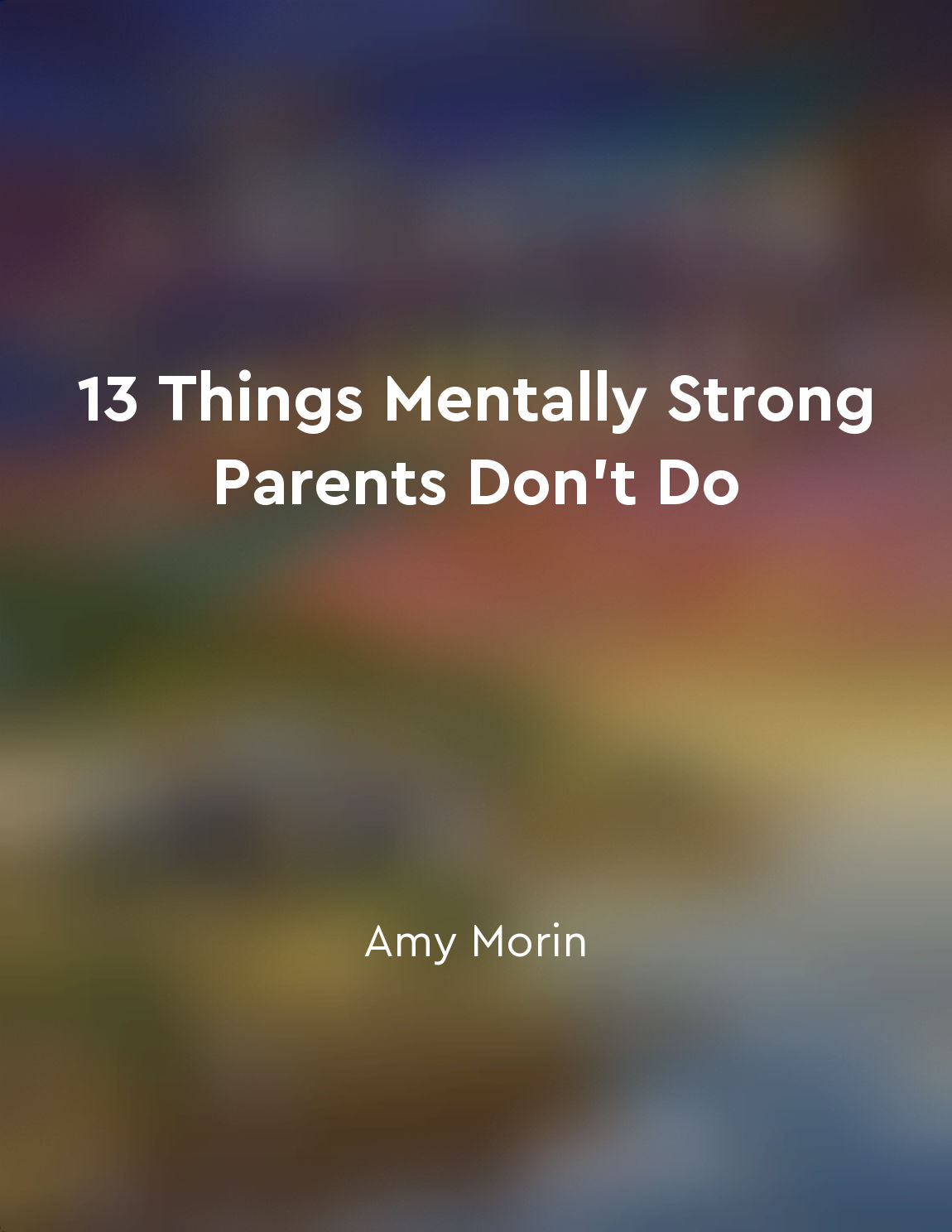Embrace the mindset that all children want to do well from "summary" of The Explosive Child by Ross W. Greene, PhD
The challenge is that many people - educators, parents, even mental health professionals - don't truly believe that all kids want to do well. But why wouldn't they? Why would any child not want to do well? Doing well feels good. Doing well leads to more privileges, more recognition, more fun. Doing well makes life easier. And every kid wants to do well. If they're not doing well, something must be getting in their way. So if we start with the belief that all kids want to do well, if we start with the assumption that they're not doing well because something is getting in their way, then our job becomes helping them overcome those obstacles. If we don't believe that all kids want to do well, we're going to have a hard time figuring out what's getting in their way and helping them do better. We'll be much more likely to think that they're not doing well because they're not trying hard enough or because they're being difficult on purpose. Kids don't want to be difficult. They don't want to be challenging. They don't want to be explosive. They don't want to be unhappy. They don't want to be uncooperative. They don't want to be inflexible. They don't want to be overwhelmed. They don't want to be anxious. They don't want to be sad. They don't want to be frustrated. They don't want to be lacking in social skills. They don't want to be lacking in organizational skills. They don't want to be lacking in self-regulation skills. They don't want to be lacking in problem-solving skills. They don't want to be lacking in adaptive skills. They don't want to be lacking in cognitive flexibility. They don't want to be lacking in frustration tolerance. They don't want to be lacking in empathy. They don't want to be lacking in moral reasoning. But all of those things get in the way of their doing well. And it's not because they don't want to do well. It's because they can't do well. It doesn't mean they won't do well. It means they can't do well. It means something is getting in their way. And if we believe that all kids want to do well, we're going to be that much more motivated to help them figure out what's getting in their way and do something about it.Similar Posts
Strive for connection, understanding, and growth in discipline moments
When it comes to disciplining your child, it's important to approach these moments with the goal of building connection, foster...

Encourage children to take risks and learn from failure
It is essential to foster an environment where children feel encouraged to step out of their comfort zone and try new things. B...

Do Not Rely Solely on Punishment to Discipline Your Child
Relying solely on punishment to discipline your child is not an effective parenting strategy. While giving consequences for mis...

Embrace a growth mindset in assessment practices
When it comes to assessment practices, it is crucial to approach them with a growth mindset. This means viewing assessment as a...
Listening is essential in resolving conflicts
When we are faced with a conflict, our instinct may be to jump in with solutions and consequences. However, in my experience, t...
Japanese teachers focus on problemsolving skills
The teaching approach in Japan is distinct in its emphasis on developing problem-solving skills in students. Japanese teachers ...
Prioritize selfcare as a parent
As parents, we often find ourselves putting the needs of our children before our own. We prioritize their well-being, happiness...
Organization is key to success
Successful families are those who have mastered the art of organization. It is the key that unlocks the door to a harmonious an...

Teaching children to focus on positive outcomes is important
Teaching children to focus on positive outcomes is crucial for their overall well-being and success. By emphasizing the importa...

Understanding the impact of trauma on children's development
Trauma can have a profound impact on a child's development. When children are exposed to trauma, whether it be physical abuse, ...
